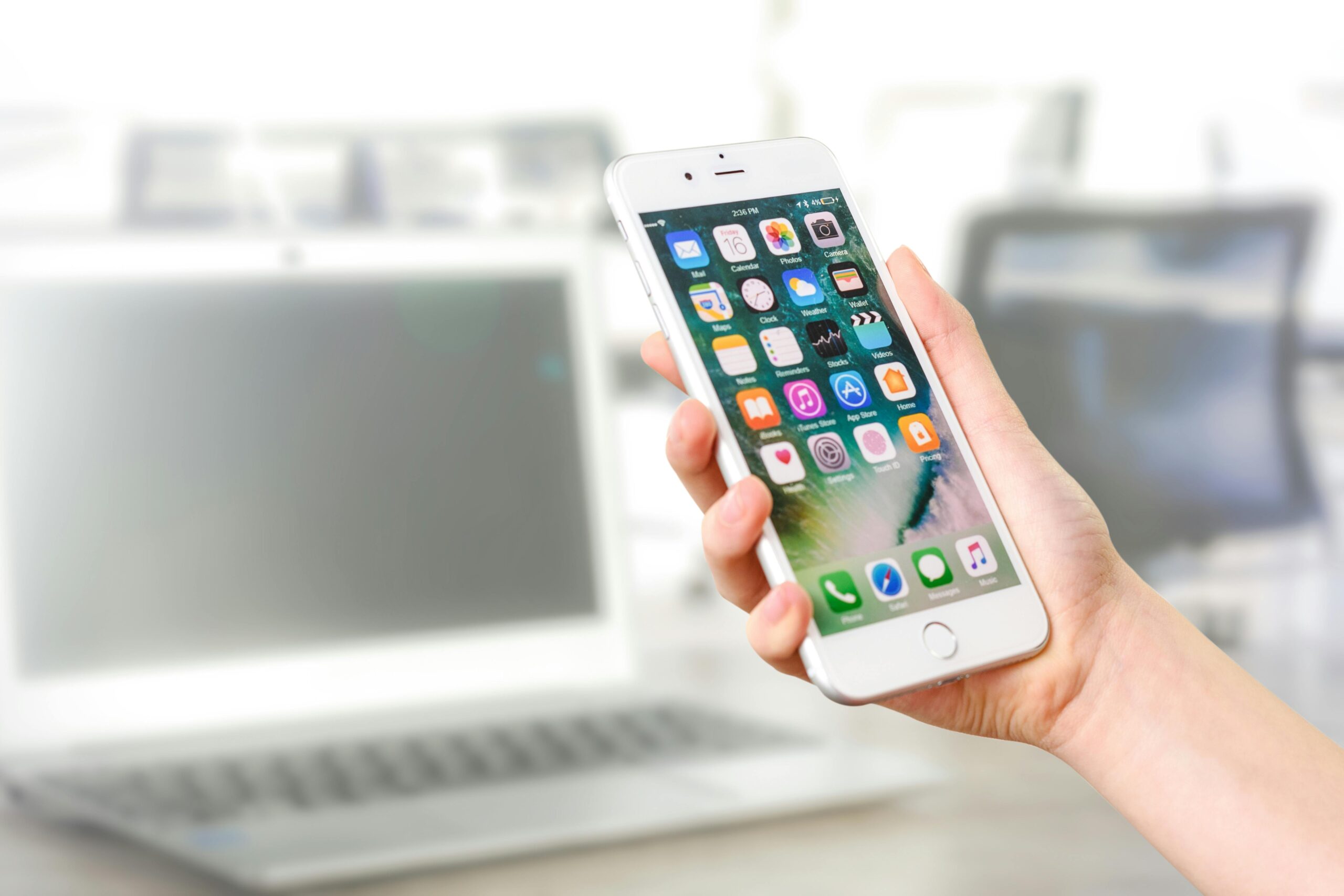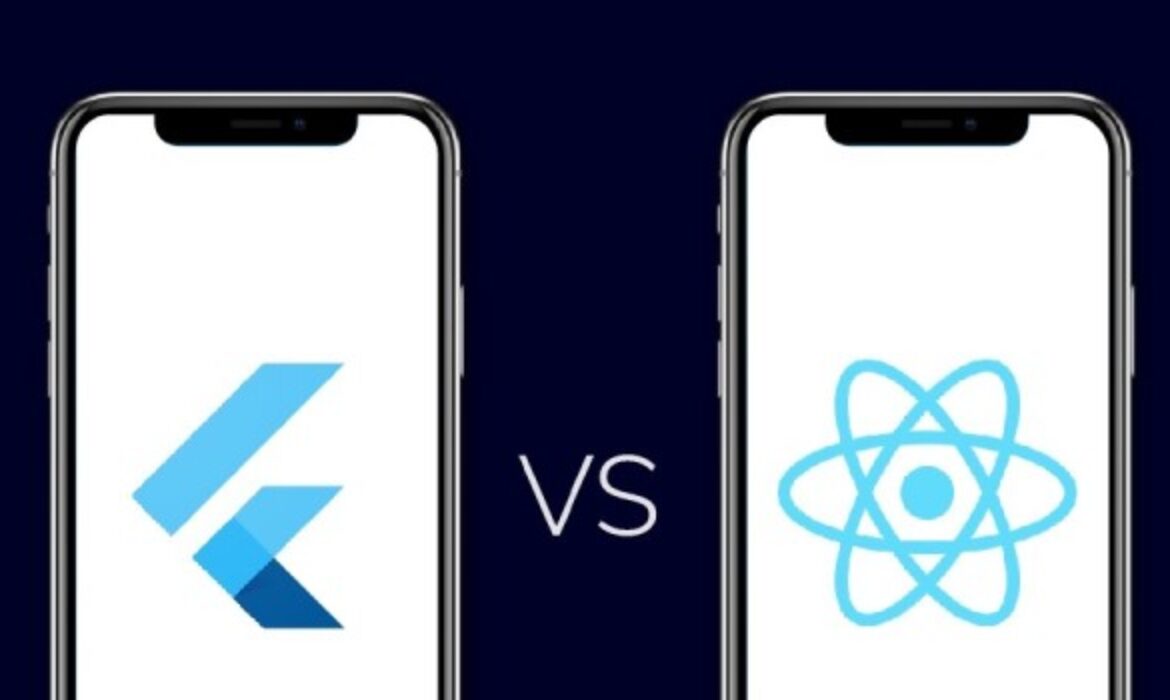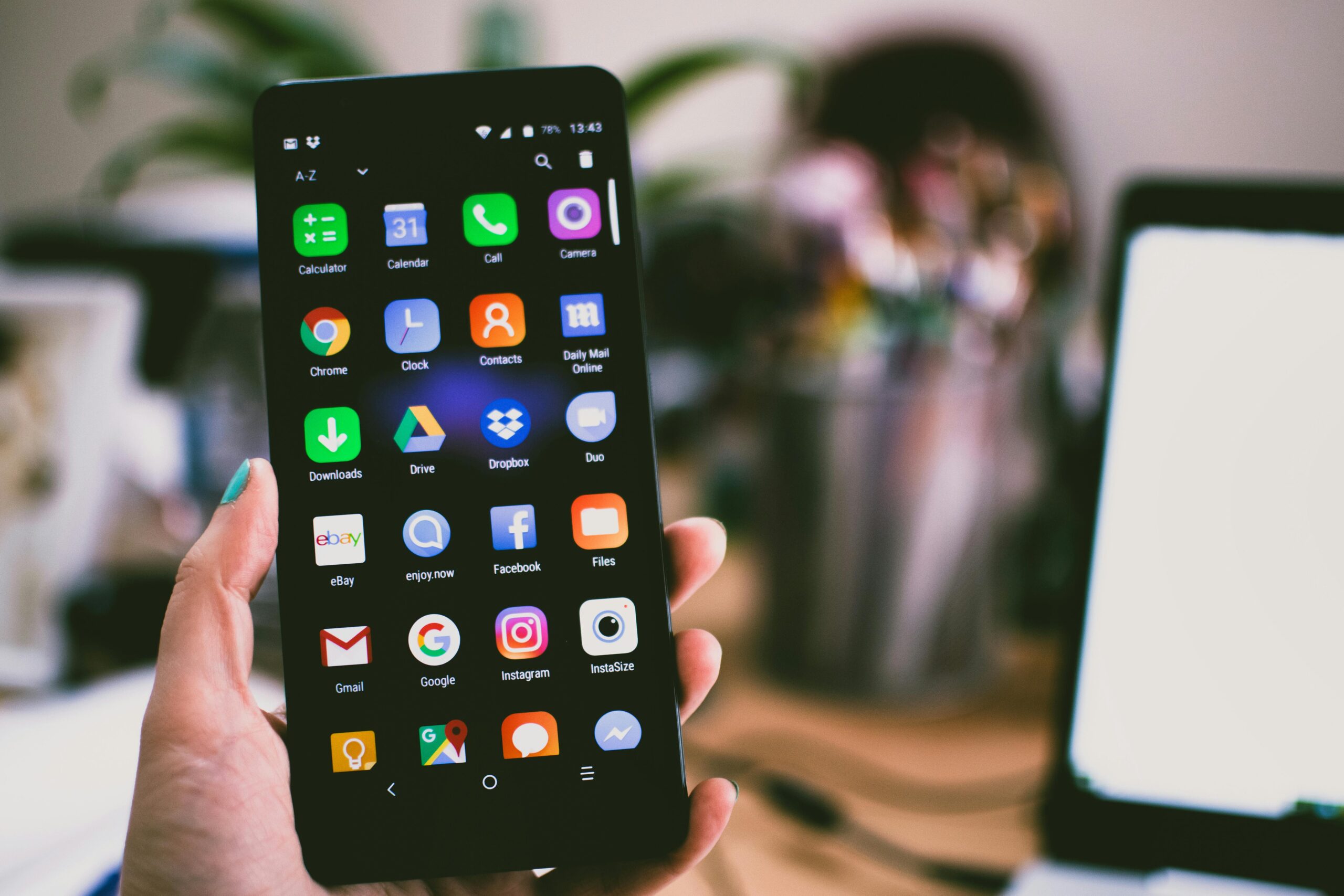According to Statista, 218 billion apps were downloaded globally in 2020. Moreover, there are close to 4 billion smartphone users across the world, with China, India and the United States leading the way as per a Newzoo report. These numbers only point to an upwards trend in digital consumption.
So What Does It Mean For Your Business?
It means that more users are turning to mobile apps than ever. In addition to a digital presence on websites or on social media, leveraging mobile apps can garner your business many benefits. Today, all industries are using mobile apps to tap into a larger customer base and this is not just limited to big corporations.
Why Mobile Apps Are An Important Tool For Digitizing Your Business?
1. Increased Brand Visibility:
According to a report by Nokia , India ranks highest in the world in terms of average time spent on smartphones, and this is projected to grow multi-fold in the coming years.
While scrolling the smartphone, it’s most likely that users will observe your mobile app and logo, thus increasing the visibility of your brand. Even when your app is not in use, it is a good branding opportunity as it increases brand recall. The mobile app will be the face of your brand on smartphones and increase touchpoints for customers while attracting a new customer base.
2. Higher Customer Engagement:
Out of sight, out of mind. In a highly competitive market, this is the reality for brands and that is why frequently engaging with customers is crucial. Not only does this increase brand loyalty but also leads to higher conversions.
One of the best examples of this is how brands like Zomato and Swiggy use push notifications to engage with customers. The notifications are personalized, compelling and interesting enough to urge users to use the app. Other tools like discounts, loyalty programs, and segmented targeting are efficient in increasing customer engagement. A good UI/UX design will ensure that customers are hooked and are spending more time going through your products and services.
3. Advantage Over Competitors:
Every business wants to differentiate itself from competitors by offering a unique and memorable experience. With mobile apps, one stands to gain a competitive edge. While big businesses are already leveraging mobile apps, small and medium businesses are also using it to their advantage.
Every user demands convenience and with mobile apps, their needs can readily be catered to from the comfort of their smartphone. Businesses in the same league which do not have an app might miss out on the opportunity. Create a lasting impression by providing an interactive, intuitive and smooth UI/UX to make users keep coming back to your app. For instance, the popular fast-food chain, Domino’s Pizza, effectively used mobile apps as one of the tools to gain a competitive edge in India. It was the first of its kind to use mobile apps for launching online ordering and this played a vital role in its success over competitors.
How To Design Large-Scale Web Applications?
Follow these best practices to build resilient and robust large-scale web applications.
1. Effective Marketing Channel:
Mobile apps can form an integral part of your marketing funnel. Mobile apps are effective in engaging with audiences, connecting through personalized messages and boosting customer loyalty.
Nowadays brands use exclusive incentives like cashback, loyalty points, discounts to users through mobile apps, which gives users a compelling reason to use this channel. For brands too, it becomes very convenient to convey information about offers, sales, special promotions, launches and more. Direct access to customers means ease of marketing which is not possible through traditional methods.
2. Boost Sales And Revenue:
The goal of every business is to be profitable by maximizing sales over time. We have already ascertained that mobile apps increase customer engagement and enhance customer experience – this leads to higher sales ratio and purchase frequency as well.
Exclusive, app-only incentives work wonderfully to push sales, in addition to geolocation or Beacon technology that sends targeted push notifications to users. The buying process becomes simplified with features like carts and wish lists, saved addresses and payment methods.
3. Gather User Insights:
Mobile apps track user data that includes browsing patterns, liked products or services, time spent on pages and more. This data can be mined and analyzed to identify patterns. By assessing user behavior over time, customer expectations can be better met and more relevant experiences can be created.
These data-backed insights can form the basis for more accurate marketing and sales strategies. Businesses can also track how consumers are responding to their marketing strategies, how and when conversions are taking place. User behavior can also be used for retargeting to increase sales. Retargeting enables showing ads of already viewed or liked products on social media platforms, mobile and web ad networks.
What Are The Types Of Mobile Apps That Can Be Developed?
Mobile apps can serve single or multi-functions depending on the nature of your business. Here are the most common types of mobile apps that can be developed.
Enterprise Apps:
Enterprise apps are made to cater to the different needs of a business. Customized to the business needs, these can include billing systems, CRM systems and solutions for specific industry types. Enterprise apps are developed for a large scale with prudent administration and security requirements. They help in improving efficiency and productivity while optimizing business processes. Slack, Jira and Salesforce are few examples of great enterprise apps.
Productivity Apps:
These apps help with organizing tasks to help finish work using optimum time. As our lives have become busier, productivity apps offer great tools for streamlining tasks and do more work in less time. Evernote, Google Keep and Pocket are some productivity apps that enable working faster with more efficiency.
Shopping Apps:
As the name suggests, these apps help sell products or services. This can range from clothes, food, utility items or services like cleaning, repairs and beauty. You can have a retail storefront and yet use shopping apps to reach more people and encourage increased sales. Some of the most popular shopping apps are Myntra, Amazon and Flipkart.
Loyalty Apps:
Think of loyalty apps as a digital version of a loyalty card. Loyalty apps allow customers to earn and track points that can be redeemed for discounts and free products or services. Loyalty apps are a great way to retain customers for a long period of time and when used to engage and communicate with customers can be very beneficial. Starbucks and Sephora Beauty Insider are some of the most lucrative loyalty apps.
You must not rely on a single load balancer as that defeats the logic of avoiding a single point of failure. Instead, aim to install multiple load balancers where one can route traffic and others can act as backups in case of malfunction.
Utility Apps:
Utility apps make specific tasks easier and faster. These single-function apps are specialized for catering to personal or business activities. Google Lens, Smart Tools and Clean Master are some examples of utility apps.
Final Words
Now, it is not a matter of ‘if’ mobile apps can be used to the advantage of your business, it is a matter of ‘when’. Convenience is key for customers who rely on quick ways to satiate their demands and mobile apps offer that ubiquitous presence. The benefits are multifold – deliver enhanced customer experience, gather valuable insights, increase customer loyalty and boost sales. Unlock new opportunities for your business including mobile apps as part of your digital strategy.






